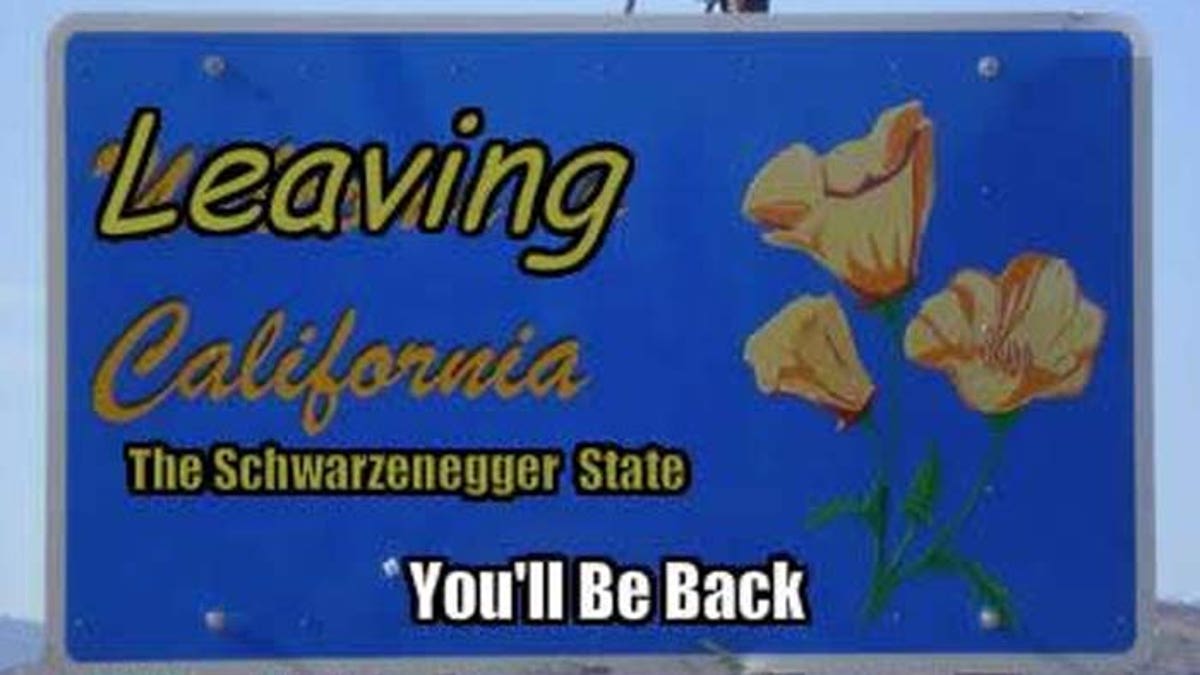
Californians are fleeing in droves to live in better-managed states, according to a conservative research group.
The long-running exodus from the cash-strapped Golden State is an old story, but a new study by The Manhattan Institute finds that the biggest beneficiaries of the population drain are Texas, Nevada, Arizona, Oregon, Washington, Colorado, Idaho, Utah, Georgia and South Carolina. Lower cost of living, less government debt and a more business-friendly culture are the main drivers, according to the study.
"States that have gained the most at California’s expense are rated as having better business climates," the study concluded. "The data suggest that many cost drivers —taxes, regulations, the high price of housing and commercial real estate, costly electricity, union power, and high labor costs — are prompting businesses to locate outside California, thus helping to drive the exodus."
Census data shows that more Americans have left California since 2005 than have come to live in it. The finding is a sharp contrast to earlier decades -- 4.2 million Americans moved to California from other states between 1960 and 1990.
The report found that since 1990, the state has lost nearly 3.4 million residents through migration to other states, like Texas, Nevada, Arizona, Oregon, Washington, Colorado, Idaho, Utah, Georgia and South Carolina. The average number of residents leaving the state each year over the last decade is 225,000, the report found.
[pullquote]
There are many reasons for the exodus, including economic hardship and population density, according to the study, titled "The Great California Exodus: A Closer Look."
Many people are driven out of the state in search of work in states with lower unemployment rates, like Texas. The data also found high housing prices and high business taxes in the state to be factors.
But Dowell Myers, a pubic policy professor at the University of Southern California, calls this "a very confused report." He said the authors overlook the root of the 1980s boom in the defense industry buildup and how that factored into the decline in the 1990s.
"They paint a negative picture of California growth, when all it has done is settle to the national average," Myers said. "And they totally miss that California natives are less like to leave than almost any others." Most of the people leaving are people originally from somewhere else, he said.
The U.S. Census reported last year that residents of California are fleeing the state at a faster rate than people leaving any other state. The most common state-to-state move in 2010 was California to Texas, according to the Census.
A study earlier this year by the University of Southern California found that California's population growth has slowed to about 1 percent annually, mainly due to fewer immigrants and an increasing number of Californians heading to other states.
Demographer Joel Kotkin told The Wall Street Journal that a major problem is that parts of the state are out of reach for the middle class.
"Basically, if you don’t own a piece of Facebook or Google and you haven’t robbed a bank and don't have rich parents, then your chances of being able to buy a house or raise a family in the Bay Area or in most of coastal California is pretty weak," Kotkin told the paper, adding that in his estimation, the state is run for the benefit of the very rich, the very poor, and public employees.
The Manhattan Institute says it based its findings on recent data from the U.S. Census, the IRS, California’s Department of Finance, the Bureau of Labor Statistics and the Federal Housing Finance Agency.







































